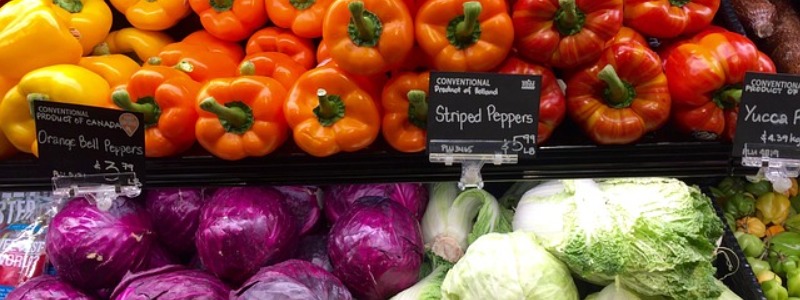Caring for a rabbit requires more than just providing a comfortable home – it also requires understanding the dietary needs and preferences of these adorable creatures. Whether you’re contemplating what veggies and fruits are safe for your bunny or seeking to add some variety to their diet, this guide will help you better understand exactly what kind of treats your furry friend can eat today.
We’ll look at all the different types of vegetables that bunnies can safely enjoy, from the tried-and-true staples to the unique and sometimes bizarre. Knowing which foods are safe and enjoyable for your pet can make them an even happier and healthier member of the family.
Can Rabbits eat Red Cabbage?
Contents
- Can Rabbits eat Red Cabbage?
- Rabbits Can Eat Carrots, right?
- Can Rabbits eat Napa Cabbage?
- Can Rabbits eat Okra?
- Can Rabbits eat Butterhead Lettuce?
- Can Rabbits eat Butternut Squash?
- Can Rabbits eat Green Onions?
- Can Rabbits eat Watercress?
- Can Rabbits Eat Globe Artichokes?
- Can Rabbits eat Bean Sprouts?
- Can Rabbits eat Turnips?
- Can Rabbits eat Edamame Beans?
- Can Rabbits eat Seaweed?
Red Cabbage is also known as purple cabbage, red kraut, or blue kraut. It has dark-colored leaves. It changes color according to the pH value of the soil due to a pigment belonging to anthocyanins. It can be found in Northern Europe, throughout the Americas, and in China.
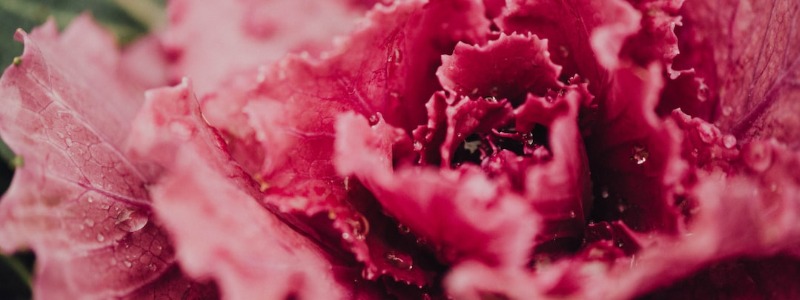
Let’s take a look at their nutritional data. In particular, their acidic, phosphorus, calcium, sodium, sugar, and fat content is of most interest as far as bunnies are concerned.
- Energy 122 kJ (29 kcal)
- Carbohydrates
- 6.94 g
- Sugars 3.32 g
- Dietary fiber 2.6 g
- Fat 0.09 g
- Protein 1.51 g
- Vitamins
- Vitamin A equiv.
- beta-carotene (0%) 2 μg
- (0%) 20 μg
- Folate (B9) (6%) 24 μg
- Vitamin C (41%) 34.4 mg
- Vitamin K (45%) 47.6 μg
- Trace metals
- Potassium (6%)
As you can see red cabbage contains a hint of fat and a little sugar.
This means that red cabbage is fine for rabbits to eat and makes a fine supplement for their hay diet. However it is known to cause them to have gas if you give them too much, so twice to three times a week in small amounts should suffice. Just make sure it isn’t their main food.
Rabbits Can Eat Carrots, right?
It must be absolutely obvious that rabbits can eat carrots. When it comes to favorite rabbit foods, carrots are pretty much up there.
So it’s obvious that it’s not really worth writing a blog post about? Or is it??
Well because we investigate every food there is, let’s take a look at carrots and what they actually contain. Let’s take a look at their nutritional data to find out more about them.
In particular, we are interested in their sugar, starch, and acidic content which is harmful to bunnies.
- Total Fat 0.2 g 0%
- Saturated fat 0 g 0%
- Polyunsaturated fat 0.1 g
- Monounsaturated fat 0 g
- Trans fat 0 g
- Cholesterol 0 mg 0%
- Sodium 69 mg 2%
- Potassium 320 mg 9%
- Total Carbohydrate 10 g 3%
- Dietary fiber 2.8 g 11%
- Sugar 4.7 g
- Protein 0.9 g 1%
- Vitamin A 334%
- Vitamin C 9%
- Calcium 3%
- Iron 1%
- Vitamin D 0%
- Vitamin B-6 5%
- Vitamin B-12 0%
- Magnesium 3%
The surprise is that carrots are very sweet and contain a high amount of sugar.
This means that, unlike bugs bunny, real-life rag bouts can’t eat carrots all the time. In fact, they can only be eaten once a week at the very most because of their sweetness. Any more frequently, and they will rot their teeth.
- Can Rabbits eat carrot peel? Yes, Carrot skin is fine for rabbits to eat. Just not too much of it.
- Can rabbits eat carrot tops? Yes, carrot tops are fine for rabbits to eat. If they have been chopped off when preparing food, then it is worth saving them for your rabbit to eat.
- Can rabbits have carrot juice? Unfortunately, carrot juice is far too sweet for them to drink. Give them water instead, it is far better for them.
- Can rabbits eat carrot cake? It isn’t the best idea to feed rabbits carrot cake as it is very sweet and contains nothing that it is very good for them.
- Can guinea pigs eat carrot cake? It is best not to feed it to them as it is very sweet and there is nothing in it that is good for them. It just isn’t worth feeding it to them.
Can Rabbits eat Napa Cabbage?
Napa cabbage is also known as napa cabbage, sui choy, celery cabbage, Chinese leaf, and wong bok and is a type of Chinese cabbage that comes from near the Peking region of China. It is used widely in East Asian cuisine.
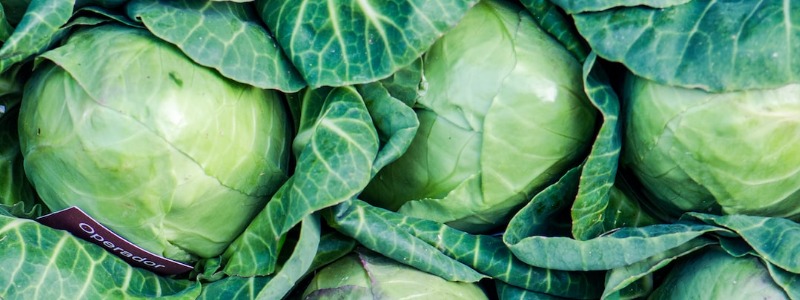
Let’s take a look at their nutritional data, in particular their acidic, phosphorus, calcium, sugar, fat, and sodium content.
- Energy 68 kJ (16 kcal)
- Carbohydrates 3.2 g
- Dietary fiber 1.2 g
- Fat 0.2 g
- Protein 1.2 g
- Vitamins
- Vitamin C (33%) 27 mg
- Trace metals
- Calcium (8%) 77 mg
- Iron (2%) 0.31 mg
- Magnesium (4%) 13 mg
- Sodium (1%) 9 mg
As you can see the only nutrient of concern is calcium which it contains quite a lot of.
So rabbits can eat napa cabbage, but only raw and don’t feed too much of it as it should supplement their hay diet. A few times a week at the most should suffice, however, don’t give them too much as it is known to cause them gas if too much is eaten.
Can Rabbits eat Okra?
Okra is known as ladies fingers, bhindi, bamia, ochro or gumbo, and is a flowering plant in the mallow family. It is renowned for its edible green seed pods and is cultivated in tropical, subtropical, and warm temperate regions around the world.
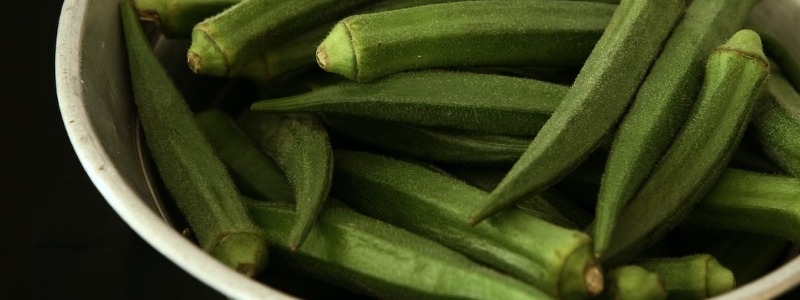
Lets take a look by checking out its nutritional data, in particular its calcium, sugar, acidic content, phosphorus, fat, fiber, and sodium content.
- Nutritional value per 100 g (3.5 oz)
- Energy 138 kJ (33 kcal)
- Carbohydrates 7.45 g
- Sugars 1.48 g
- Dietary fiber 3.2 g
- Fat 0.19 g
- Protein 2.00 g
- Vitamins
- Vitamin A equiv. (5%)36 μg
- Thiamine (B1) (17%)0.2 mg
- Riboflavin (B2) (5%)0.06 mg
- Niacin (B3) (7%)1 mg
- Vitamin C (28%)23 mg
- Vitamin E (2%)0.27 mg
- Vitamin K (30%)31.3 μg
- Trace metals
- Calcium (8%)82 mg
- Iron (5%)0.62 mg
- Magnesium (16%)57 mg
- Potassium (6%)299 mg
- Zinc (6%)0.58 mg
- Water
As you can see okra contains a lot of calcium and acidic content and a hint of fiber and sugar.
This means that it is pretty bad unfortunately for bunnies and will harm them if it is eaten. This is disappointing as it does have some sweet-looking leaves but its calcium and acids are bad news for rabbits. If they nibble at it, they will be fine but they shouldn’t have any more than that.
Okra is a food to avoid.
Can Rabbits eat Butterhead Lettuce?
Butterhead lettuce is also known as Boston or bibb lettuce and is a head lettuce that has a loose arrangement of leaves. It is known for its sweet flavour and tender texture.
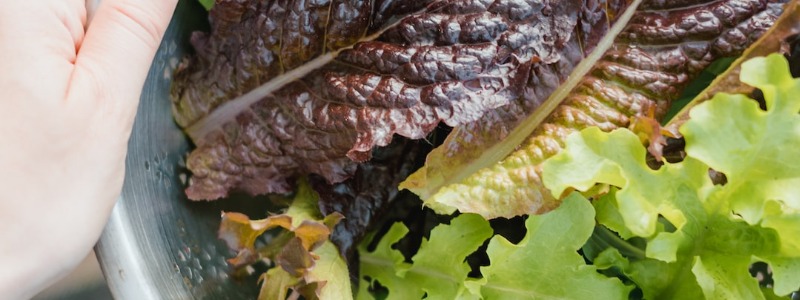
So can bunnies eat butterhead lettuce at all?
Let’s take a look at its nutritional data in particular its calcium, sugar, fat, fiber, sodium, phosphorus, and acidic content is of most interest as far as bunnies are concerned.
- Nutritional value per 100 g (3.5 oz)
- Energy 55 kJ (13 kcal)
- Carbohydrates 2.23 g
- Sugars 0.94
- Dietary fiber 1.1 g
- Fat 0.22 g
- Protein 1.35 g
- Vitamin A equiv.
- beta-carotene
- lutein zeaxanthin (21%) 166 μg
- Thiamine (B1) (5%) 0.057 mg
- Riboflavin (B2) (5%) 0.062 mg
- Pantothenic acid (B5) (3%) 0.15 mg
- Vitamin B6 (6%) 0.082 mg
- Folate (B9) (18%) 73 μg
- Vitamin C (4%) 3.7 mg
- Vitamin E (1%) 0.18 mg
- Vitamin K (97%) 102.3 μg
- Trace metals
- Calcium (4%) 35 mg
- Iron (10%) 1.24 mg
- Magnesium (4%) 13 mg
- Manganese (9%) 0.179 mg
- Phosphorus (5%) 33 mg
- Potassium (5%) 238 mg
- Sodium (0%) 5 mg
- Zinc (2%) 0.2 mg
- Water 95.63 g
As you can see butterhead lettuce contains quite a bit of phosphorus and a little calcium, but a lot of acidic content. This means that although rabbits are renowned for eating lettuce, and they absolutely love it, butterhead lettuce is not very good for them to eat.
They are fine to have a nibble at it, but because of the amount of acidic content that it has in it, rabbits should not eat any more than that.
Can Rabbits eat Butternut Squash?
Butternut squash is a cucurbit which is also known as butternut pumpkin and is a winter squash.
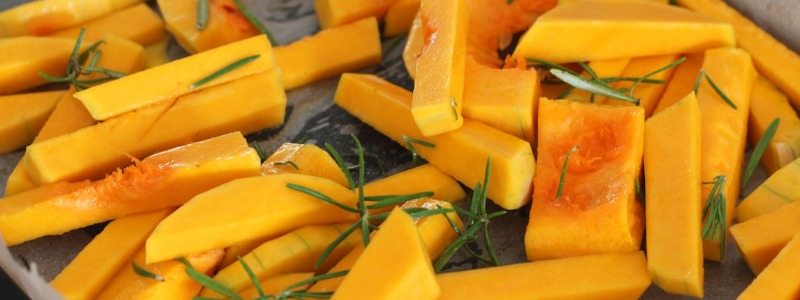
Its taste is nutty and sweet like that of a pumpkin. It has yellow skin and orange fleshy pulp. As it ripens it turns a deeper orange and gets richer and sweeter.
So can bunnies eat butternut squash and if get can how much of them can be eaten?
In particular their sugar, fat, phosphorous, acidic, fiber, protein, and calcium content is particularly of interest.
- Nutritional value per 100 g (3.5 oz)
- Energy 188 kJ (45 kcal)
- Carbohydrates 11.69 g
- Dietary fiber 2 g
- Fat 0.1 g
- Protein 1 g
- Vitamin A equiv.
- beta-carotene
- Thiamine (B1) (9%)0.1 mg
- Riboflavin (B2) (2%)0.02 mg
- Niacin (B3) (8%)1.2 mg
- Pantothenic acid (B5) (8%)0.4 mg
- Vitamin B6 (12%)0.154 mg
- Folate (B9) (7%)27 μg
- Vitamin C (25%)21 mg
- Vitamin E (10%)1.44 mg
- Calcium (5%)48 mg
- Iron (5%)0.7 mg
- Magnesium (10%)34 mg
- Manganese (10%)0.202 mg
- Phosphorus (5%)33 mg
- Potassium (7%)352 mg
- Zinc (2%)0.15 mg
As you can see butternut squash contains quite a lot of phosphorus and calcium. It is also quite acidic. This means it is not great for rabbits to eat and can only be eaten in small amounts once a week at the most.
Can bunnies eat butternut squash skin?
Although it is reasonably tough, it is still fine for them to eat
Can bunnies eat butternut squash seeds?
Unfortunately, they can’t eat butternut squash seeds. There is too much danger of them being lodged in the rabbit’s throat.
Can Rabbits eat Green Onions?
Green Onions are different names for the Scallion, Spring Onion, Salad Onion, Table Onion, Shallot, Green Shallot, Onion Stick, Long Onion, Baby Onion, Precious Onion, Yard Onion, Gibbon, or Syboe. This is much dependent on what part of the world you are from.
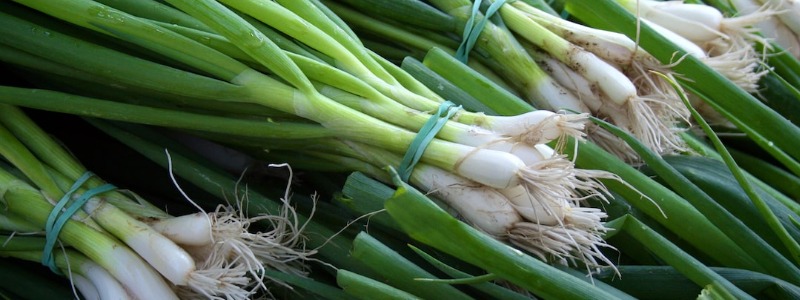
The green onion has green leaves that are hollow however it does not have a root bulb that is developed. This is quite unlike a normal common onion.
They are often eaten as part of a salad. So if we can eat them, can rabbits eat green onions, and if so how much of them can they eat? Let’s take a look at their nutritional data and find out more about them.
In particular their sugar, fat, phosphorous, acidic, protein, and calcium content is particularly of interest.
- Nutritional value per 100 g (3.5 oz)
- Energy 301 kJ (72 kcal)
- Carbohydrates 16.8 g
– Sugars 7.87 g
– Dietary fiber 3.2 g - Fat 0.1 g
- Protein 2.5 g
- Thiamine (vit. B1) 0.06 mg (5%)
- Riboflavin (vit. B2) 0.02 mg (2%)
- Niacin (vit. B3) 0.2 mg (1%)
- Pantothenic acid (B5) 0.29 mg (6%)
- Vitamin B6 0.345 mg (27%)
- Folate (vit. B9) 34 μg (9%)
- Vitamin C 8 mg (10%)
- Calcium 37 mg (4%)
- Iron 1.2 mg (9%)
- Magnesium 21 mg (6%)
- Manganese 0.292 mg (14%)
- Phosphorus 60 mg (9%)
- Potassium 334 mg (7%)
- Zinc 0.4 mg (4%)
Green onions contain a lot of phosphorus and a quite acidic, they also contain a lot of sugar.
This means they are not good for rabbits to eat as unfortunately, they would give them severe tummy problems. Green onions are best avoided.
Can Rabbits eat Watercress?
Watercress is a rapidly growing, aquatic, or semi-aquatic perennial plant which is native to Europe and Asia. It is one of the oldest known leaf vegetables which is eaten by humans and is botanically related to mustard, radish, garden cress, and wasabi.
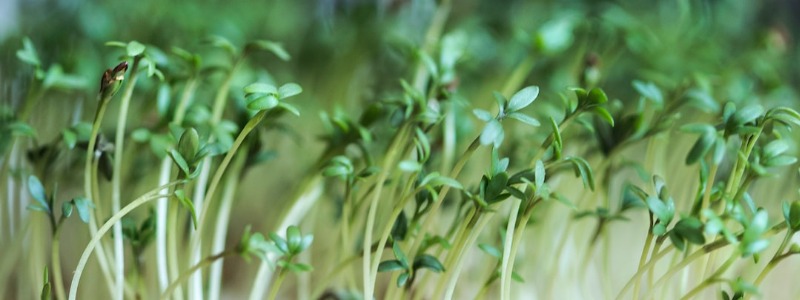
So can bunnies eat watercress at all?
Let’s take a look at its nutritional data and find out more. In particular, we are interested in its phosphorus, sodium, sugar, fat, fiber, and acidic content. value per 100 g (3.5 oz)
- Energy 46 kJ (11 kcal)
- Carbohydrates 1.29 g
- Sugars 0.2 g
- Dietary fiber 0.5 g
- Fat 0.1 g
- Protein 2.3 g
- Vitamin A equiv.
- beta-carotene
- lutein zeaxanthin (20%)160 μg
- Thiamine (B1) (8%)0.09 mg
- Riboflavin (B2) (10%)0.12 mg
- Pantothenic acid (B5) (6%)0.31 mg
- Vitamin B6 (10%)0.129 mg
- Folate (B9) (2%)9 μg
- Vitamin C (52%)43 mg
- Vitamin E (7%)1 mg
- Vitamin K (238%)250 μg
- Calcium (12%)120 mg
- Iron (2%)0.2 mg
- Magnesium (6%)21 mg
- Manganese (12%)0.244 mg
- Phosphorus (9%)60 mg
- Potassium (7%)330 mg
- Sodium
As you can see watercress contains quite a lot of phosphorus, calcium, acidic content, and a hint of fat, fiber, and sugar.
This means that watercress is not as good as you might think for rabbits to eat. It is in fact pretty bad for them due to its high acidic, calcium, and phosphorus content. It is not worth feeding to them as it will hurt their tummies if it is eaten. If they eat a little bit of it that would be fine, but it should not be purposely fed to them.
Can Rabbits Eat Globe Artichokes?
There are three different plants that are all known as artichokes, which are the Jerusalem artichoke, the Chinese artichoke, and the Globe artichoke.
However, there is one of them that is considered to be the true artichoke of the three of them, and that is the Globe artichoke.
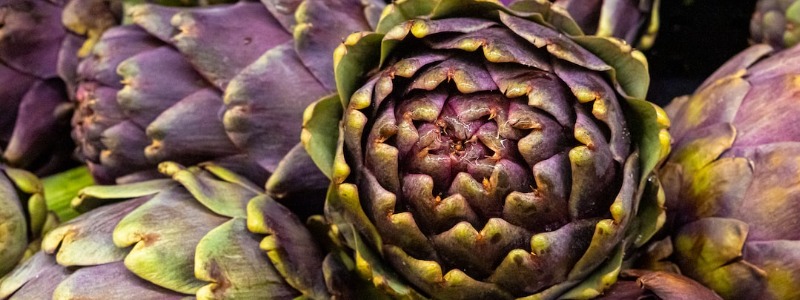
Although they share the same name, the Globe artichoke is not related to any of the other two types of artichoke.
The Globe artichoke is closely related to the thistle and has an edible portion that consists of the flower. The budding artichoke flower head is a cluster of budding flowers together with many bracts on an edible base. The rest of the artichoke is not edible at all, however.
So can bunnies eat artichokes at all, and if they can how much of them can be eaten?
Let’s take a look at their nutritional data to find out more about them.
As per usual, we’re interested in their starch, sugar, fat, phosphorous, acidic, and calcium content which will reveal if it is any good for rabbits.
- Energy 211 kJ (50 kcal)
- Carbohydrates 11.39 g
- Sugars 0.99 g
- Dietary fiber 8.6 g
- Fat 0.34 g
- Protein 2.89 g
- Vitamin A equiv.
- lutein zeaxanthin 464 μg
- Thiamine (B1) (4%) 0.05 mg
- Riboflavin (B2) (7%) 0.089 mg
- Niacin (B3) (7%) 1.11 mg
- Pantothenic acid (B5) (5%) 0.24 mg
- Vitamin B6 (6%) 0.081 mg
- Folate (B9) (22%) 89 μg
- Vitamin C (9%) 7.4 mg
- Vitamin E (1%) 0.19 mg
- Vitamin K (14%) 14.8 μg
- Calcium (2%) 21 mg
- Iron (5%) 0.61 mg
- Magnesium (12%) 42 mg
- Manganese (11%) 0.225 mg
- Phosphorus (10%) 73 mg
- Potassium (6%) 286 mg
- Sodium (20%) 296 mg
- Zinc (4%)
As you can see Globe artichokes have a lot of phosphorus and are very acidic. This makes them pretty bad for rabbits and a vegetable that they should avoid.
If they do happen to eat a little of them, then this won’t hurt them but they will not benefit from being purposely fed them.
There are much better and healthier foods for them to eat, and Globe artichokes are definitely one to avoid for bunnies.
Can Rabbits eat Bean Sprouts?
A common ingredient in Asian cuisine, Mung Bean sprouts are grown from sprouting beans. They are made from greenish-capped mung beans.
Mung Bean sprouts are a common ingredient, especially in Asian cuisine, made from sprouting beans. Other types of bean sprouts are typical, yellow large grained soy sprouts.
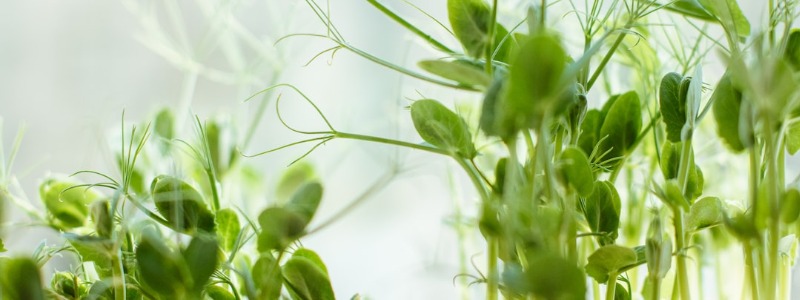
So if we can eat Mung bean sprouts, can bunnies eat them?
Let’s take a look by checking out their nutritional data to find out more about them.
As per usual, we’re interested in their sugar, fat, phosphorus, protein, calcium, and acidic content. A nice amount of fiber would be good for them as well.
- Energy 126 kJ (30 kcal)
- Carbohydrates 5.94 g
– Sugars 4.13 g
– Dietary fiber 1.8 g - Fat 0.18 g
- Protein 3.04 g
- Thiamine (vit. B1) 0.084 mg (7%)
- Riboflavin (vit. B2) 0.124 mg (10%)
- Niacin (vit. B3) 0.749 mg (5%)
- Pantothenic acid (B5) 0.38 mg (8%)
- Vitamin B6 0.088 mg (7%)
- Folate (vit. B9) 61 μg (15%)
- Vitamin C 13.2 mg (16%)
- Vitamin E 0.1 mg (1%)
- Vitamin K 33 μg (31%)
- Calcium 13 mg (1%)
- Iron 0.91 mg (7%)
- Magnesium 21 mg (6%)
- Manganese 0.188 mg (9%)
- Phosphorus 54 mg (8%)
- Potassium 149 mg (3%)
- Zinc 0.41 mg (4%)
As per usual, mung bean sprouts have a moderate amount of sugar, and phosphorus and are quite acidic.
This means that rabbits can eat mung bean sprouts but not often. Once a week should suffice because of their acidic nature.
Can Rabbits eat Turnips?
Turnips are a root vegetable commonly grown in temperate climates worldwide for its white, bulbous taproot.
Small, tender varieties are grown for human consumption, while larger varieties are grown as feed for livestock.
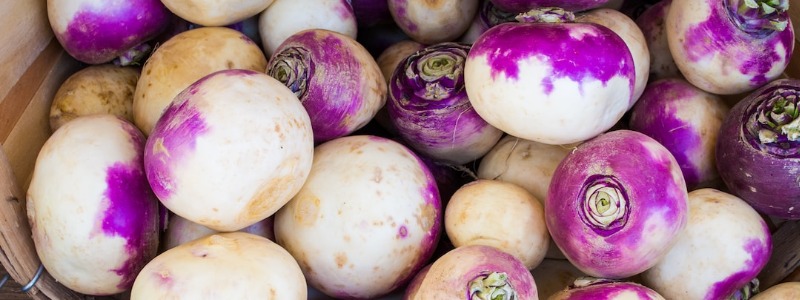
So can bunnies eat turnips at all?
Let’s take a look at their nutritional data in particular their sugar, calcium, fat, phosphorus, sodium and acidic content
- Nutritional value per 100 g (3.5 oz)
- Energy 84 kJ (20 kcal)
- Carbohydrates 4.4 g
- Sugars 0.5 g
- Dietary fiber 3.5 g
- Fat 0.2 g
- Protein 1.1 g
- Vitamin A equiv.
- beta-carotene
- lutein zeaxanthin
(48%)381 μg
(42%)4575 μg
8440 μg - Thiamine (B1) (4%)0.045 mg
- Riboflavin (B2) (6%)0.072 mg
- Niacin (B3) (3%)0.411 mg
- Pantothenic acid (B5)
- (5%)0.274 mg
- Vitamin B6 (14%)0.18 mg
- Folate (B9) (30%)118 μg
- Vitamin C (33%)27.4 mg
- Vitamin E (13%)1.88 mg
- Vitamin K (350%)368 μg
- Calcium (14%)137 mg
- Iron (6%)0.8 mg
- Magnesium (6%)22 mg
- Manganese (16%)0.337 mg
- Phosphorus (4%)29 mg
- Potassium (4%)203 mg
- Sodium (2%)29 mg
As you can see phosphorus contains a little phosphorus, an awful lot of calcium, quite a bit of acid, and a hint of fat, sugar, and fiber.
This means that rabbits can eat turnips but not too much as their calcium content is high.
A few segments a week is quite sufficient. They can also cause bloat if they have too much of it as well. They can eat the tops and greens as well, just make sure they don’t eat too much as well.
Can Rabbits eat Edamame Beans?
Edamame beans are the preparation of immature soybeans in a pod and are often used in the cuisine of Taiwan, China, Japan, Indonesia, Korea, and Hawaii. They are often boiled or steamed and served with salt.
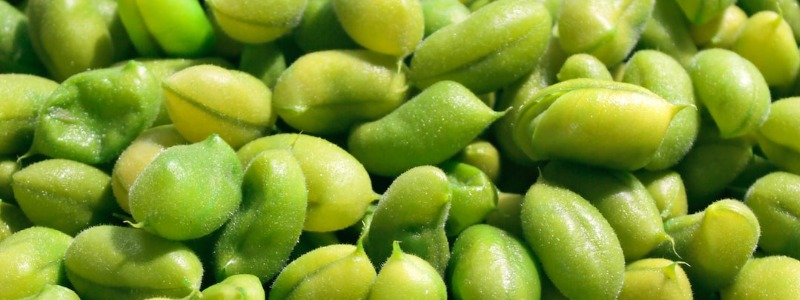
So can bunnies eat edamame beans at all?
Let’s take a look here and find out more by checking out their sodium, sugar, phosphorus, fat, fiber, acidic content, and calcium content.
- Nutritional value per 100 g (3.5 oz)
- Energy 509 kJ (122 kcal)
- Carbohydrates 9.94 g
- Sugars 2.18 g
- Dietary fiber 5.2 g
- Fat 5.2 g
- Protein 10.88 g
- Thiamine (B1) (17%) 0.2 mg
- Riboflavin (B2) (13%) 0.155 mg
- Niacin (B3) (6%) 0.915 mg
- Pantothenic acid (B5) (8%) 0.395 mg
- Vitamin B6 (8%) 0.1 mg
- Folate (B9) (78%) 311 μg
- Vitamin C (7%) 6.1 mg
- Vitamin E (5%) 0.68 mg
- Vitamin K (26%) 26.8 μg
- Calcium (6%) 63 mg
- Iron (17%) 2.27 mg
- Magnesium (18%) 64 mg
- Manganese (49%) 1.024 mg
- Phosphorus (24%) 169 mg
- Potassium (9%) 436 mg
- Zinc (14%) 1.37 mg
As you can see Edamame beans contain a lot of phosphorus, calcium, acidic content, quite a bit of fat and fiber, and a little sugar content.
This basically rules them out as far as bunnies are concerned as they contain too much bad stuff for bunnies to eat and are a food to avoid feeding them.
Can Rabbits eat Seaweed?
Seaweed is found in places all over the world on sea shores washed up from the ocean. It is also sold in grocery stores and is a delicacy in the Far East.
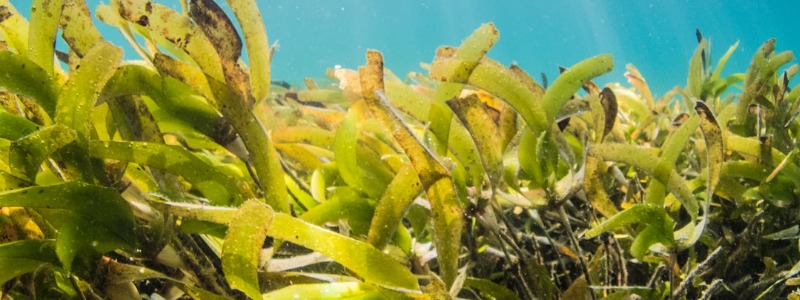
So can bunnies eat seaweed at all?
Unfortunately, they can’t at all, seaweed of course contains high amounts of sodium which is something that rabbits can’t handle a lot of. They are okay to nibble on it, but too ‘inch of it could damage their kidneys
So avoid giving Seaweed to bunnies.

